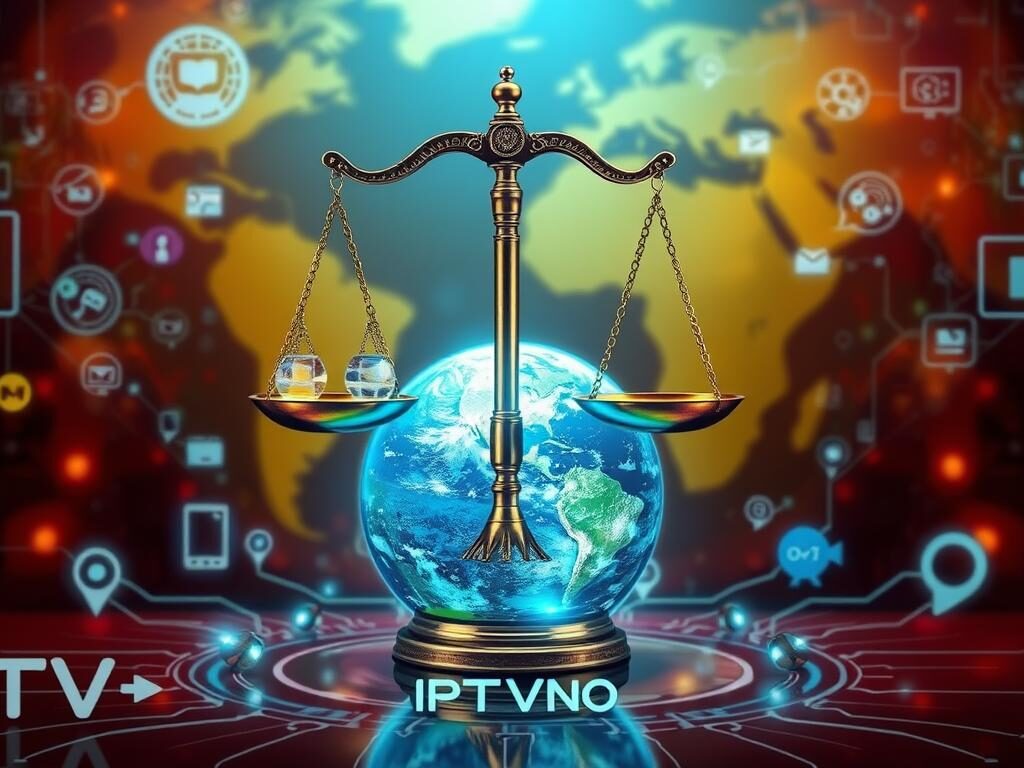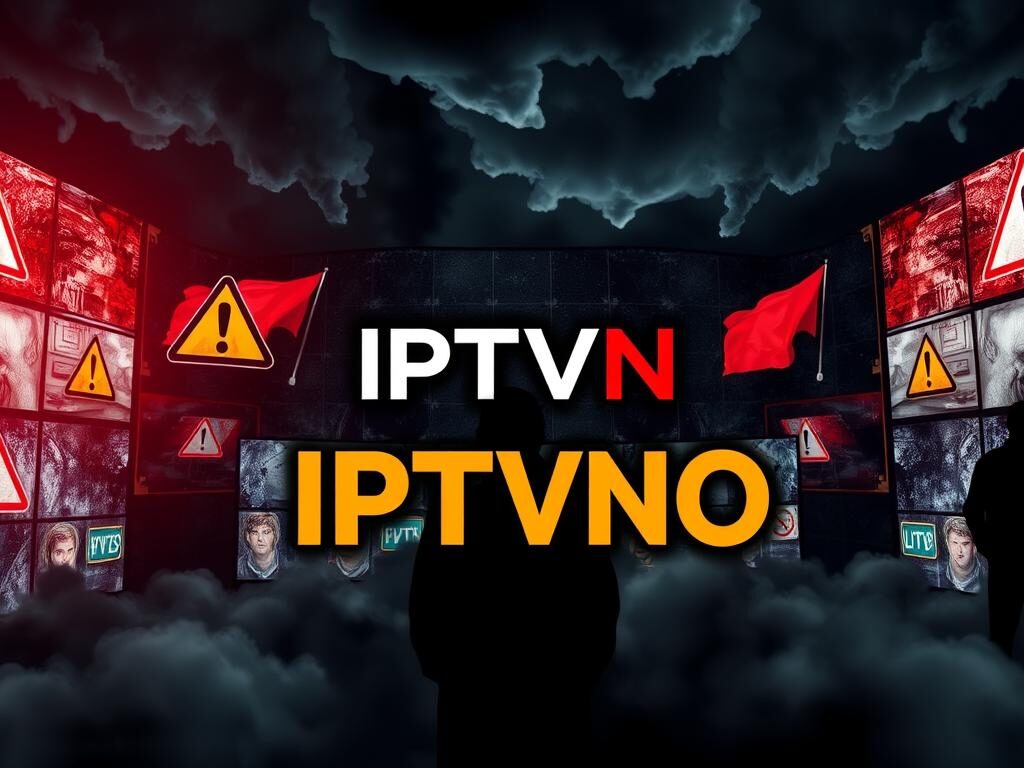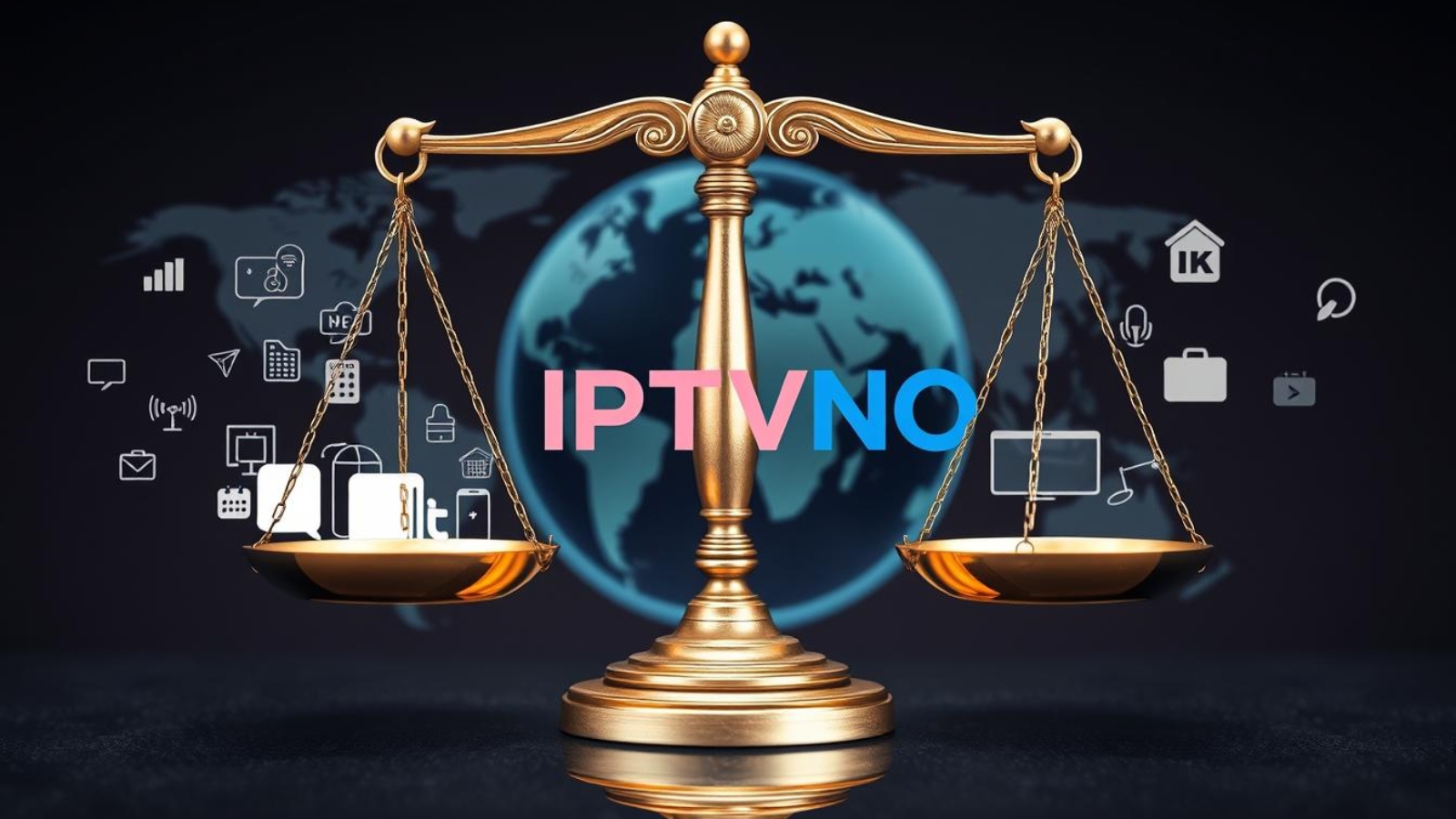Are IPTV Services Legal? Understanding Their Legal Status
Streaming technology keeps changing, raising questions about IPTV legality. It’s not always easy to tell if IPTV services are legal. People want to know if these digital platforms are okay to use.
The legality of IPTV depends on many things. This includes who owns the rights to the content and how it’s distributed. Not every IPTV service is legal, which can confuse viewers looking for fun.
As streaming changes how we watch media, it’s important to understand the law. Some IPTV services are legal, while others might break copyright rules. To stay safe, users need to check who provides the service and how they get their content.
Key Takeaways
- IPTV legality varies based on content licensing
- User awareness is crucial in selecting legal streaming services
- Copyright laws significantly impact IPTV service operations
- Not all IPTV platforms have the same legal standing
- Content distribution rights play a critical role in determining legality
What is IPTV and How Does it Work?
Internet Protocol Television (IPTV) is a new way to watch TV over the internet. It’s different from old TV methods because it sends media straight to viewers online. This changes how we enjoy digital shows.
The law around IPTV deals with how it shares and gets content. IPTV lets viewers watch TV on the internet, making it more flexible and fun.
Types of IPTV Services
IPTV has many types to fit what viewers like:
- Live Television Streaming
- Video-on-Demand (VOD)
- Time-Shifted Media
- Interactive Services
Technical Infrastructure
IPTV’s tech is complex, with special streaming and networks. The law around IPTV streaming depends on the right licenses and how content is shared.
| Component | Function |
|---|---|
| Streaming Servers | Encode and distribute media content |
| Content Delivery Networks | Optimize content transmission |
| User Middleware | Manage user interface and interactions |
Common IPTV Features
Today’s IPTV has cool features to make watching better:
- Multi-device compatibility
- Personalized content recommendations
- Pause and rewind live TV
- Advanced search capabilities
The future of television is not just about watching, but experiencing content on your terms.
Knowing the tech and legal sides of IPTV is key for finding good and legal streaming services.
The Current Legal Framework for IPTV Services
Understanding IPTV laws and regulations can be tricky. It affects both providers and users. In the US, there are many laws from different government groups.
- Telecommunications regulations
- Copyright protection laws
- Digital content distribution rights
- Intellectual property statutes
Important federal agencies watch over IPTV services:
- Federal Communications Commission (FCC)
- Copyright Office
- Department of Justice
“The legal complexity of IPTV requires careful navigation of existing regulatory frameworks.” – Communications Law Expert
IPTV laws aim to protect creators and ensure everyone can access digital media. Providers need the right licenses and follow strict copyright rules to stay legal in the US.
The legality of IPTV in the US depends on several things:
- Content source authentication
- Licensing agreements
- Distribution permissions
- Compliance with intellectual property laws
Knowing these rules helps both users and businesses choose IPTV services wisely. It also helps them avoid legal issues.
Are IPTV Services Legal? Breaking Down the Facts
Understanding IPTV legality can be tough for users. It’s key to know the legal side before using IPTV. Whether IPTV providers are legal depends on a few important things.
Licensed vs. Unlicensed IPTV Providers
The legality of IPTV services depends on their licenses. Legal IPTV providers have the right to stream content. But, unlicensed services can lead to big legal problems.
- Licensed providers have official rights to stream content
- Unlicensed services stream content without permission
- Legal IPTV platforms pay royalties to creators
Content Distribution Rights
Content rights are key in IPTV legality. Providers must get the right licenses for each channel and show.
| Licensing Status | Legal Implications | User Risk |
|---|---|---|
| Fully Licensed | Completely Legal | Minimal Legal Risk |
| Partially Licensed | Grey Area | Moderate Risk |
| Unlicensed | Illegal | High Legal Risk |
User Responsibilities and Risks
Users must choose legal IPTV providers. Using unauthorized streaming services can lead to legal trouble.
“Not all IPTV services are created equal. Due diligence is key to staying on the right side of the law.” – Digital Media Expert
- Research provider’s legal status before subscribing
- Check for proper content licensing
- Avoid services with suspiciously low pricing
- Understand potential legal risks of unauthorized streaming
When checking if IPTV providers are legal, users should look at their credentials, licenses, and content rights. This helps avoid legal problems.
Copyright Laws and IPTV Streaming

Understanding iptv copyright laws is complex. It involves knowing how digital content is shared. Copyright laws are key to how IPTV works and manages its content.
The legal side of IPTV includes several important points:
- Content licensing agreements
- Digital transmission rights
- Intellectual property regulations
- Streaming permissions
Copyright laws decide how digital content can be legally shared through IPTV platforms. Creators and distributors have rights to protect their work from being streamed without permission.
“In the digital age, copyright protection extends far beyond traditional media channels” – Digital Media Legal Expert
Each type of content has its own copyright rules:
- Live television broadcasts
- Pre-recorded shows
- Movies and documentaries
- International programming
IPTV providers need to get the right licenses to stream copyrighted content legally. Streaming without permission can lead to big legal troubles and even shut down services.
Knowing these copyright details helps both viewers and providers make sure their streaming is legal and safe.
Legal IPTV Service Providers and Their Operations
Exploring IPTV services can be tricky, especially figuring out which ones are legal and safe. Knowing what makes a service legitimate helps people choose wisely in 2021 and later.
Characteristics of Legitimate IPTV Services
Legal IPTV providers have certain traits that set them apart from illegal streaming sites:
- Proper licensing and content distribution rights
- Transparent business operations
- Secure payment methods
- Clear terms of service
- Customer support channels
Popular Legal IPTV Platforms
Several top IPTV services are known for being legal and trustworthy:
| Platform | Subscription Cost | Content Variety |
|---|---|---|
| Sling TV | $35/month | 70+ channels |
| YouTube TV | $64.99/month | 85+ channels |
| Hulu + Live TV | $69.99/month | 75+ channels |
Pricing and Subscription Models
Legal IPTV services offer flexible pricing to meet various viewer needs. Most platforms have monthly subscriptions with no long-term commitments. This lets users try content without big financial risks.
When looking at IPTV services, always choose legal ones that follow copyright laws and have clear pricing.
People looking for legal IPTV should find providers that follow copyright rules and have wide content libraries.
Identifying Illegal IPTV Services and Associated Risks
Finding legal IPTV services can be tough. Knowing how to spot illegal providers is key to avoiding legal and security dangers.

- Extremely low subscription prices
- Lack of clear licensing information
- Unrestricted access to premium content without appropriate fees
- Absence of official customer support channels
Are IPTV providers legal? It depends on several important factors. Illegal IPTV services pose big risks:
| Risk Category | Potential Consequences |
|---|---|
| Legal Risks | Potential copyright infringement lawsuits |
| Security Risks | Exposure to malware and personal data theft |
| Service Quality | Unreliable streams and inconsistent performance |
“Choosing a legitimate IPTV service is not just about staying legal, but protecting your digital safety and experience.” – Digital Entertainment Expert
Consumers should always choose licensed IPTV providers. They show they are transparent about their content. Going for a reputable service means better safety and a more stable streaming experience.
The Future of IPTV Regulation and Compliance
IPTV laws and regulations are changing fast. This brings both challenges and chances for providers and users. As streaming tech gets better, laws need to keep up to protect content and ensure fair sharing.
The world of digital entertainment is changing a lot. Laws are getting stronger to handle the issues of online TV.
Emerging Legal Frameworks
New rules are being made to better manage IPTV:
- Stronger copyright protection
- Tighter content licensing rules
- Rules for digital content across borders
- More openness in how content is shared
Industry Standards and Best Practices
IPTV providers are setting up strong rules to follow the law:
- Using advanced digital rights systems
- Writing clear user agreements
- Checking content well
- Investing in safe streaming tech
“The future of IPTV regulation lies in balancing technological innovation with legal protection.” – Digital Media Expert
Everyone agrees that following the law and being ready for changes is key for IPTV to grow.
How to Choose a Legal IPTV Service Provider
Choosing a legal IPTV service is important. It ensures you’re using are iptv services legal and follow streaming legality standards. The right provider gives you a great viewing experience and keeps you safe from legal trouble.
When looking at IPTV services, keep these key points in mind:
- Make sure they have official licensing and the right to distribute content
- Look for transparent business practices
- Check if they have a wide range of content
- Understand their pricing and subscription terms
- Read what other users say about them
“Always choose legal IPTV streaming services that show they have clear content agreements and follow the law.”
Signs of a real IPTV provider include:
- Working with well-known content creators
- Having clear terms of service
- Accepting recognized payment methods
- Offering professional customer support
Services like IPTVNO are great examples of legal IPTV. They have full content licensing, so you can stream without worrying about legal issues.
Always do your homework and choose providers that focus on legal and ethical content sharing.
Conclusion
Understanding IPTV legality is complex. The US IPTV scene has many legal hurdles for both users and providers. It’s important for viewers to be careful about where they get their streaming content.
Choosing legal IPTV services means picking platforms that follow copyright laws. Services like Sling TV, YouTube TV, and Hulu + Live TV show how streaming can be legal and fun. They follow the rules about IPTV in the US.
Users have a big role in keeping streaming legal. By picking licensed providers, they can enjoy great content safely. This way, they avoid legal problems with unauthorized streaming services.
The future of IPTV relies on teamwork between tech companies, creators, and regulators. As things change, knowing the IPTV laws is key. This helps users make smart, legal choices when streaming.


Add a Comment